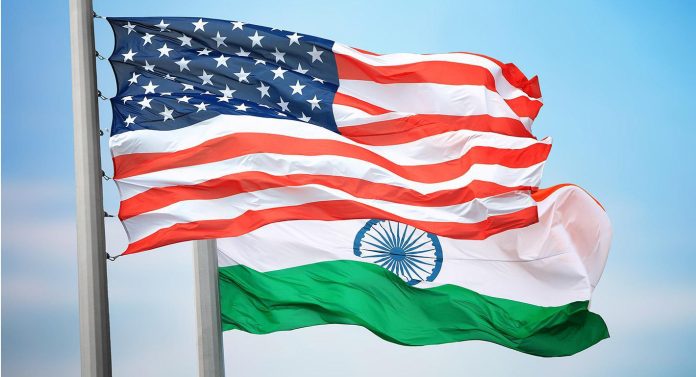WASHINGTON, June 15: The Indian-American community, which has grown to five million in 2023, has broken through many barriers to become one of the most influential immigrant groups in the US now, a report said Thursday, observing that their story is about motivated immigrants and their children chasing the American dream.
“Indian Americans account for only 1.5 per cent of the US population, yet they continue to have an outsized and positive impact across different aspects of US society,” said Indiaspora founder MR Rangaswami.
“The Indian American-driven innovation flows to the country’s bottom line and is laying the groundwork for the next phase of economic growth,” he said.
The report “Indiaspora Impact Report: Small Community, Big Contributions,” conducted by Boston Consulting Group, is the first volume in a series to look at the impact of the Indian diaspora, with a special focus on public service, business, culture and innovation in the United States.
Noting that the Indian diaspora’s economic impact in the US is impressive, spanning from founding major companies to significantly boosting the tax base, the report says this financial influence shows the determination of individuals who overcame challenges to make meaningful contributions to their new home.
CEOs of Indian-origin head 16 Fortune 500 companies, including Sundar Pichai of Google and Reshma Kewalramani of Vertex Pharmaceuticals. These leaders collectively employ 2.7 million Americans and generate nearly one trillion in revenue.
While it is well-known that Indian Americans lead major corporations, their impact goes beyond big business.
Indian-Americans have a significant presence in the startup world, co-founding 72 out of 648 US unicorns. These companies, like Cambridge Mobile Telematics and Solugen, employ over 55,000 people and are valued at USD 195 billion, it said.
The entrepreneurial spirit extends to small businesses across the country. Indian Americans own about 60 per cent of all US hotels, a testament to their profound impact on the hospitality industry, it said.
Observing that their contributions to the US tax base are also notable, the report says although they make up only 1.5 per cent of the population, it is estimated that they pay about 5-6 per cent of all income taxes (i.E., USD 250 billion to USD 300 billion). Additionally, their professions indirectly create 11-12 million American jobs, showcasing their broader economic influence beyond big business success.
According to the report, research, innovation, and academia in the US have thrived thanks to the contributions of the Indian diaspora.
Between 1975 and 2019, the share of US patents held by Indian-origin innovators jumped from around two per cent to 10 per cent.
In 2023, scientists of Indian-origin snagged about 11 per cent of all National Institutes of Health grants and contributed to 13 per cent of scientific publications.
Take Navin Varadarajan, for example, a trailblazer in immunotherapy, bringing new hope to cancer patients. Or Subra Suresh, former director of the National Science Foundation, whose patents in biomedical devices have revolutionised healthcare globally.
Around 22,000 faculty members of Indian-origin are teaching at US colleges and universities, making up about 2.6 per cent of all full-time faculty.
There are some standout leaders among them, like Dr Neeli Bendapudi, Penn State’s first female president, and Arun Majumdar, the first Dean of Stanford’s Doerr School of Sustainability.
Indiaspora said whether one thinks of the US as a melting pot or a salad bowl, Indian-Americans have significantly shaped the cultural landscape of the United States across various domains such as cuisine, wellness, festivals, film, and fashion.
In the culinary world, figures like Michelin-starred chef Vikas Khanna and celebrated chef Maneet Chauhan have brought Indian flavours to mainstream American dining. Roni Mazumdar’s chain of successful restaurants, including Adda, Dhamaka and Semma in New York, showcases authentic and innovative Indian dishes.
Wellness practices with Indian roots, like those promoted by Deepak Chopra, who popularised Ayurvedic practices and holistic health, have become significant trends in American culture.
Yoga and Ayurveda, with roots in India, are now staples in American wellness practices. Since Swami Vivekananda introduced yoga to America, it has become a favourite health ritual and exercise – by 2023, about 10 per cent of Americans were practicing yoga, with roughly 36,000 yoga studios across the country.
Indian festivals like Diwali and Holi are now widely celebrated in the US, featuring vibrant parades, music, dance, and food.
Bollywood’s influence continues to grow with stars like Priyanka Chopra Jonas making successful transitions to Hollywood, and young talents like Mean Girls’ star Avantika Vandanapu are gaining fame, it said.
In the fashion segment, traditional elements such as henna, bindi, and lehenga are becoming mainstream, with lehengas available at high-end retailers like Nordstrom. Designers Falguni and Shane Peacock showcase their glamorous designs at New York Fashion Week, worn by celebrities.
In literature, authors like Jhumpa Lahiri and Abraham Verghese have had a profound impact with their explorations of the Indian-American experience, according to the report.
The Indian diaspora’s philanthropic efforts show a strong commitment to giving back and making a difference in both the US and India. Organisations like the American India Foundation (AIF) have raised over USD 125 million, impacting millions of lives.
The Desai Foundation, another notable organisation, has touched over 1.5 million lives through its health and livelihood programs.
Indian Americans, it said are making waves as senators, representatives, and mayors, showing up and showing out in the democratic arena.
In the past decade, more and more Indian Americans are getting involved, holding over 60 notable positions in the federal administration in 2013 and growing to more than 150 by 2023, including Vice President Kamala Harris, making history as the first woman to hold that office. (PTI)


